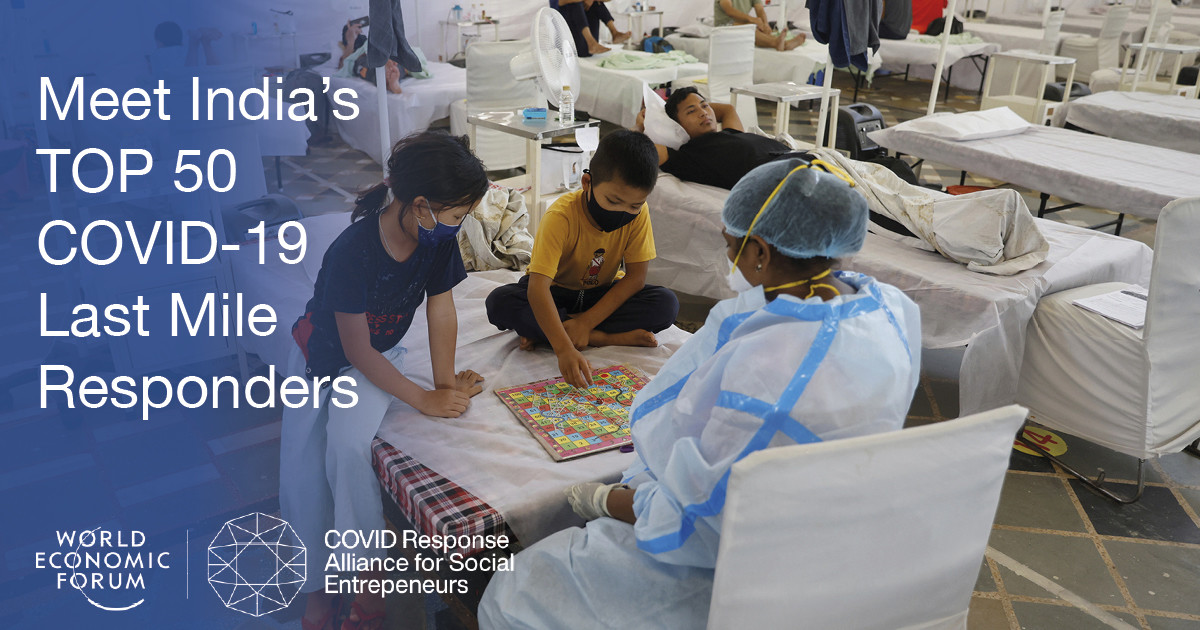COVID-19: What you need to know about the coronavirus pandemic on 21 October
The International Contemporary Art Fair is underway in France.
Image: REUTERS/Benoit Tessier
Explore and monitor how COVID-19 is affecting economies, industries and global issues
Stay up to date:
COVID-19
Listen to the article
- This daily round-up brings you a selection of the latest news and updates on the COVID-19 coronavirus pandemic, as well as tips and tools to help you stay informed and protected.
- Top stories: India passed 1 billion vaccine doses administered; Italian study finds only very old or sick die of COVID 19 if vaccinated; US FDA approves Moderna and Johnson & Johnson COVID-19 vaccines for booster doses.
1. How COVID-19 is affecting the globe
Confirmed cases of COVID-19 have passed 242 million globally, according to Johns Hopkins University. The number of confirmed deaths stands at more than 4.92 million. More than 6.72 billion vaccination doses have been administered globally, according to Our World in Data.
New Zealand has reported a record daily rise in COVID19 cases for the second time in three days, with 102 new infections.
Britain's health minister Sajid Javid has resisted calls from doctors for a return of restrictions, a so-called 'Plan B', but warned that could change if more people did not take up the offer of vaccination. The country reported 223 new deaths from COVID-19 on Tuesday, the highest daily figure since March, and cases are the highest in Europe.
It came as a descendant of the the Delta COVID-19 variant was being tested in the UK to assess the level of threat it poses. But it's not yet considered a variant of concern, according to the BBC.
Ukraine has also reported a record daily rise in new COVID-19 cases and COVID-19-related deaths, with 22,415 new cases and 546 deaths.
The United States has now donated more than 200 million COVID-19 vaccine doses to more than 100 countries, the White House announced.
Japan's Shionogi & Co Ltd has announced Phase II/III trials for its COVID-19 vaccine candidate.
France's lower house of parliament voted to approve the extension of COVID-19 health pass measures until at least 31 July, 2022. The pass shows the holder is vaccinated against COVID-19, or has recently tested negative.
The Pan American Health Organization has called on countries to grant entry to vaccinated travellers regardless of which shot they received, to prevent discrimination and facilitate business.
Poland plans to make COVID-19 vaccine booster doses available to all adults over the next few weeks, Prime Minister Mateusz Morawiecki, said.
The Czech Republic is set to introduce new restrictions, due to the rise in COVID-19 cases.
The US Food and Drug Administration has approved booster doses of the COVID-19 vaccines from Moderna and Johnson & Johnson. It also said Americans could choose a different shot from their original inoculation for their booster.
The World Health Organization has warned that the COVID-19 pandemic will go on longer than necessary because of vaccine inequity. It means it could 'easily drag deep into 2022'.
2. India administers 1 billion COVID-19 vaccine doses
India has passed a COVID-19 vaccine milestone by administering 1 billion doses, the government announced today.
India's immunization campaign has covered three-quarters of its 944 million adults with at least one dose, but only 31% with two. The government wants all adults to get vaccinated this year.
"India scripts history," Prime Minister Narendra Modi said on Twitter. "We are witnessing the triumph of Indian science, enterprise and collective spirit of (1.3 billion) Indians."
Accept our marketing cookies to access this content.
These cookies are currently disabled in your browser.
Nearly 90% of the vaccines administered in India have come from the Serum Institute of India (SII), which produces a licensed version of the AstraZeneca drug. SII has more than tripled its capacity since April and can now produce 220 million vaccine doses a month.
India’s leading COVID-19 last-mile responders
3. Only very old or sick die of COVID-19 if vaccinated - Italian study
People vaccinated against COVID-19 are highly unlikely to die of the disease unless very old and already badly ill before getting it, a study in Italy showed on Wednesday.
The study by the National Health Institute (ISS), contained in a regular ISS report on COVID-19 deaths, shows the average age of people who died despite being vaccinated was 85. On average they had five underlying illnesses.
The average age of death among those not vaccinated was 78, with four pre-existing conditions. Cases of heart problems, dementia and cancer were all found to be higher in the sample of deaths among those vaccinated.
The analysis, carried out from Feb. 1 to Oct. 5 this year, studied the medical records of 671 unvaccinated COVID fatalities and 171 fully vaccinated ones.
Accept our marketing cookies to access this content.
These cookies are currently disabled in your browser.
Don't miss any update on this topic
Create a free account and access your personalized content collection with our latest publications and analyses.
License and Republishing
World Economic Forum articles may be republished in accordance with the Creative Commons Attribution-NonCommercial-NoDerivatives 4.0 International Public License, and in accordance with our Terms of Use.
The views expressed in this article are those of the author alone and not the World Economic Forum.
Forum Stories newsletter
Bringing you weekly curated insights and analysis on the global issues that matter.
More on Health and Healthcare SystemsSee all
Shyam Bishen
May 27, 2025
Daniella Diaz Cely
May 27, 2025
Silvio Dulinsky
May 23, 2025






